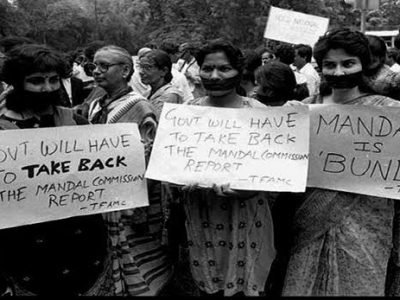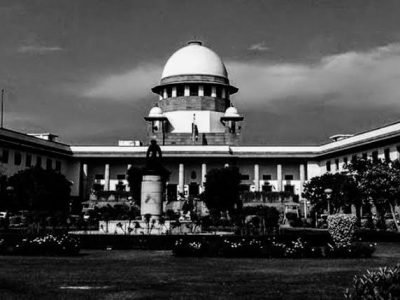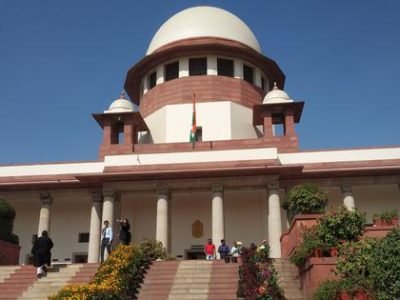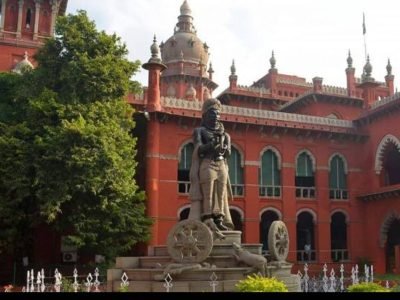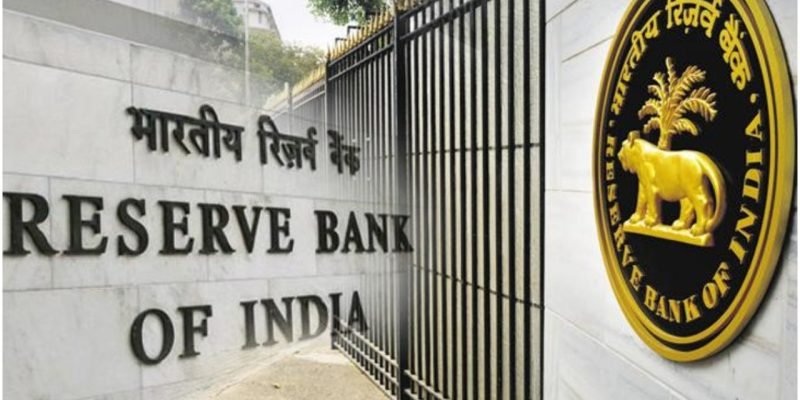
Author: Nistha Sinha, 2nd year LL.B. student at Symbiosis Law School, Pune.
Introduction
The Supreme Court of India made one of the landmark judgments in an appeal in the case of “Reserve Bank Of India & Ors vs Peerless General Finance”. The appeal was directed against a judgment by the High Court of Calcutta (May 3, 1995).
Having been incorporated as a limited company under the provisions of the Indian Companies Act (1913)[1], circa 1932, Peerless adopted “Peerless General Insurance and Investment Company Ltd.” as its name. The business revolved around life insurance. Although, soon after, the company could not carry forward its dealings due to the ratification of the Life Insurance Corporation Act (1956)[2]. Therefore, the name was changed to “Peerless General Finance and Investment Co. Ltd.” to deal with finance and investment business. It was a non-banking company.
This new offshoot of the Peerless Group offered small savings schemes at large towards the public. The subscribers were mandated to give a fixed amount of payment as a subscription. It could be either yearly, half-yearly or quarterly for an allotted number of years. Upon the expiration of the said period, every subscriber received an ‘Endowment’ sum.
Section 45J of the Reserve Bank of India Act (1934)[3] authorizes the Banks[4] to not just regulate but also prohibit the issuance of prospectus or even advertisement by a non-banking institution that is soliciting money as deposits from the public. Further Section 45K permits the Banks to accumulate information from non-banking institutions regarding deposits. Further, it also enables the Banks to issue directions to such institutions.
The Reserve Bank issued three sets of directions to regulate not only deposits being accepted by non-banking companies but also further classifying them into financial, non-financial and miscellaneous companies in Chapter III B of the Act.
- Non-Banking Financial Companies (Reserve Bank) Directions, 1966: This was related to companies (apart from insurance companies, stock exchange or broking companies) which were known to engage in a variety of services including, housing finance, investments, hire-purchase finance, mutual benefit business, loan equipment leasing, and so on.
- Non-Banking Non-Financial Companies (Reserve Bank) Directions, 1966: This was in regards to a company that is neither a banking company nor a financial company.
- Miscellaneous Non-Banking Companies (Reserve Bank) Directions, 1973: This was in relation to a company that is engaged in the transactions of collecting money in either a lump sum or otherwise. This could be achieved by sale of certificates, units or other instruments. These would utilize the money that was collected in order to be handed over to a specific count of subscribers through means of lot, draw, prizes, gifts and so on. Further, these companies would refund the principal amount with or without interest to those who have not won any prize etc., or conducting any other form of chit or kuri or any other similar business.
Keeping the above specifications in mind, a conclusion was drawn that a majority of the non-banking companies that were accepting deposits were non-financial companies. It was believed that there was a need to more effectively regulate such deposit accepting activities of these companies. Thus, the Companies (Amendment) Act (1974)[5] was enacted which led to the insertion of Sections 58A and 58B in the Companies Act, 1956.[6]
Under Section 58A, there are provisions for regulating how deposit amounts are received by non-banking non-financial companies along with also vesting this power to the Central Government. Further, the Court upheld its previous judgment in reference to this statute citing the case of Delhi Cloth and General Mills etc. v. Union of India[7] (1983), etc. . This argument of validity of the said section had been upheld by the Court. Further, the contention of this section being violative of the rights guaranteed under Articles 14 and 19(1)(g) of the Constitution was also rejected.
Essential Details of the Case
Citation: Reserve Bank Of India & Ors vs Peerless General Finance, (1996) SCC (1) 753.
Petitioner(s): Reserve Bank of India & Ors.
Respondent(s): Peerless General Finance and Investment Company Ltd. & Anr.
Petitioner’s Lawyer: Shri Harish N. Salve
Respondent’s Lawyer: Shri Somnath Chatterjee
Concerned Statutes and Provisions: Indian Companies Act (1913), Life Insurance Corporation Act (1956), Banking Regulation Act (1949), The Reserve Bank of India Act (1934), The Companies (Amendment) Act (1974), the Companies Act (1956), Article 32, Article 19 1(g), Article 363.
Bench: S.C. Agarwal (J), G.B. Pattanaik (J)
Date of Judgment: 04.01.1996
Present Status: Dismissed
Facts Of The Case And Issues
Peerless sought exemption from complying with the Miscellaneous Non-Banking Companies (Reserve Bank) Directions (1973). This was granted to the company by the Bank through Paragraph 4 of the said directions[8] although with exemption of certain conditions.
The Miscellaneous Non-Banking Companies (Reserve Bank) Directions (1977) was issued having considered the recommendations by the Raj Committee. It was marked by a stark departure from the earlier directions of 1973. It was the foremost to fix a ceiling with respect to the period to be considered for deposits to be accepted. The said period was fixed at not more than thirty six months. Peerless submitted an application to the Bank requesting the grant of an exemption from the provisions of those Directions of 1977. Meanwhile, the Prize Chits and Money Circulation Schemes (Banning) Act, 1978[9] had been enacted by the Parliament. The Bank opined that the schemes brought about by Peerless were within the bandwidth of the provisions of this Act. Further, since Peerless was restricted from doing fresh business, the Act mandated it to wind up its existing business. It was also perceived that there wasn’t any need of granting any exemption to Peerless. However, this claim of Peerless was taken into consideration by the Bank for exemption based on its merits. Although it was felt that it was imperative to cancel the exemption that had already been granted.
Following these series of events, a writ petition was filed at the Calcutta High Court by Peerless. Peerless argued to declare that the Prize Chits and Money Circulation Schemes (Banning) Act, 1978 could not be applied to any sort of business that it could be carrying on. The Division Bench of Calcutta High Court allowed this petition. Further declaring that the said business proceedings of Peerless could not be categorized within the spectrum of the Prize Chits and Money Circulation Schemes (Banning) Act, 1978. The Supreme Court affirmed this view in Reserve Bank of India v. Peerless General Finance & Investment Co. Ltd., 1987[10], (`Peerless I’). The definition of the expression `prize chits’ as defined in Section 2(e) of the said Act did not cover the various schemes offered by Peerless after examination by the Court. In furtherance of this context, the judges acknowledged the “mushroom growth” of financial and investment companies which offer incredibly greater rates of interest to depositors. This created suspicion within the court and raised doubt as to if these companies are not just speculative ventures advertised to attract unaware and impressionable investors and take over their savings.
Another writ petition was filed by Peerless under Article 32 of the Constitution[11] which challenged the validity of the Residuary Non-Banking Companies (Reserve Bank) Directions, 1987. The Court disposed of not only the appeals of the Bank but also the writ petition through its judgment in Peerless General Finance and Investment Co. Ltd. & Anr. v. Reserve Bank of India (1992)[12] (`Peerless II’). The main issue of contention in Peerless II were centered around Paragraphs 6 and 12 of the 1987 Directions. The reasoning behind it was that the 1987 Directions were ultra vires the power conferred on the Bank by Sections 45J and 45K of the Act. Further, none of these sections authorises the Bank to frame any directions prescribing the manner of investment of deposits received or the method of accountancy to be followed or the way in which its balance sheets and business of accounts are to be drawn up. This contention was negated by the Court, holding that the Bank was not only competent but also had the authority to issue the 1987 Directions.
Arguments From The Petitioners
- Highlighted that the underlying objective of Section 45K of the Reserve Bank of India Act (1934) (part of Chapter III B) is the regulation of the conditions depending on which deposits could be accepted by non-banking companies or institutions and to avert malpractices.
- The powers granted to the Bank under Section 45K(3) of the Act are very wide.
- The petitioners pointed out that in the case of Peerless II the Court had upheld the directions accommodated in Paragraphs 6 and 12 of the 1987 Directions.
- Further, the directions of Paragraph 4A are specifically designed to restrict the sidestepping of the directions within Paragraphs 6 and 12 along with making them effective.
- Also stressed that the power of the issuance of directions envisaged in Paragraphs 6 and 12 would necessarily encompass the said power to ensure that they are not avoided by contrivances or devices which essentially involve a change in nomenclature.
- It was also submitted that ‘deposit’ as an expression is defined in clause (bb) of Section 45I, although it has been elaborated in extremely broad terms to include receiving money through deposit or loan or in any other form. Due to the fact that this definition is substantiated in an enabling statute, it would have been unsuitable to construe the words used in that definition in a manner that is restrictive, especially, when there are provisions expressly excluding a number of items which would otherwise fall within the definition, which clearly highlights that the legislature intended to utilize the expression in its widest sense as including receipts which may be revenue in nature.
- Further contending that the phrase “in respect of any matters or connected with the receipt of deposits” in Section 45K(3) are of very wide range and they cannot be confined by the words which follow these words.
Arguments From Respondents
- The respondent’s stance was that it was in support of the judgment of the High Court. Further urging to define deposit as an amount of money received that is correlated with a commitment to repay the same. Therefore processing/maintenance charges recovered by Peerless which happened to be non-refundable in nature cannot be called deposits.
- The Counsel further went on to argue that the phrase “any other form” in the definition of the term `deposit’ contained in Clause (bb) of Section 45-I has to be construed ejusdem generis[13] with the words “deposits or loan” which essentially precede these words.
- Noscitur-a-Sociis[14] was invoked by the respondents as a rule. Also mentioning that the words “any other form” is accompanied by the words “deposit or loan” which would then mean other forms of payment which are refundable in nature.
- The interpretation of the words indicated that the preceding words have been used in a confined sense or otherwise there was no need to use the words which follow them.
Judgment Held
The appeal was allowed although the judgment of the Calcutta High Court (1993, 1995) was set aside. Further, the said writ petition filed by the respondents was dismissed. The Court decided that there was no order as to costs.
Judgment Reasoning And Analysis
There were a lot of factors that the Court had to bear in mind with regards to this particular appeal. Given the prior judgments passed in 1993 and 1995, this case in particular had a lot of precedent weighing on it. The Supreme Court set aside the Calcutta High Court’s judgments due to the ever evolving nature of the statutes involved and the larger umbrella or spectrum of statute and authority that the Reserve Bank of India covers. The Court also found that the writ petition filed by the respondents had to be dismissed because the petitioners very meticulously laid down their arguments whilst staying true to the meaning and nature of the statutes that were being contented. The Court did not find any discrepancy with what the RBI was doing and what it was mandated to do while the counsel for respondents argued otherwise.
References
[1] Indian Companies Act, 1913, No. VII, Governor General of India 1913 (India).
[2] Life Insurance Corporation Act, 1956, No. 31, Acts of Parliament 1956 (India).
[3] The Reserve Bank of India Act, 1934, No. 55 , Acts of Parliament 1963 (India).
[4] Reserve Bank of India.
[5] The Companies (Amendment) Act, 1974, No. 10, Acts of Parliament 1974 (India).
[6] The Companies Act, 1956, No. 1, Acts of Parliament 1956 (India).
[7] Delhi Cloth and General Mills etc. v. Union of India, 1963 AIR 791.
[8] Para. 4: Non-applicability of the directions to certain types of deposits of money.
[9] Prize Chits and Money Circulation Schemes (Banning) Act, 1978, No. 43, Acts of Parliament 1978 (India).
[10] Reserve Bank of India v. Peerless General Finance & Investment Co. Ltd., 1987 AIR 1023.
[11] Right to Constitutional Remedies.
[12] Peerless General Finance and Investment Co. Ltd. & Anr. v. Reserve Bank of India, 1992 (1) SCR 406.
[13] Ejusdem Generis : of the same kind.
[14] Noscitur-a-Sociis: the meaning of an unclear word or phrase should be determined by the words immediately surrounding it.



